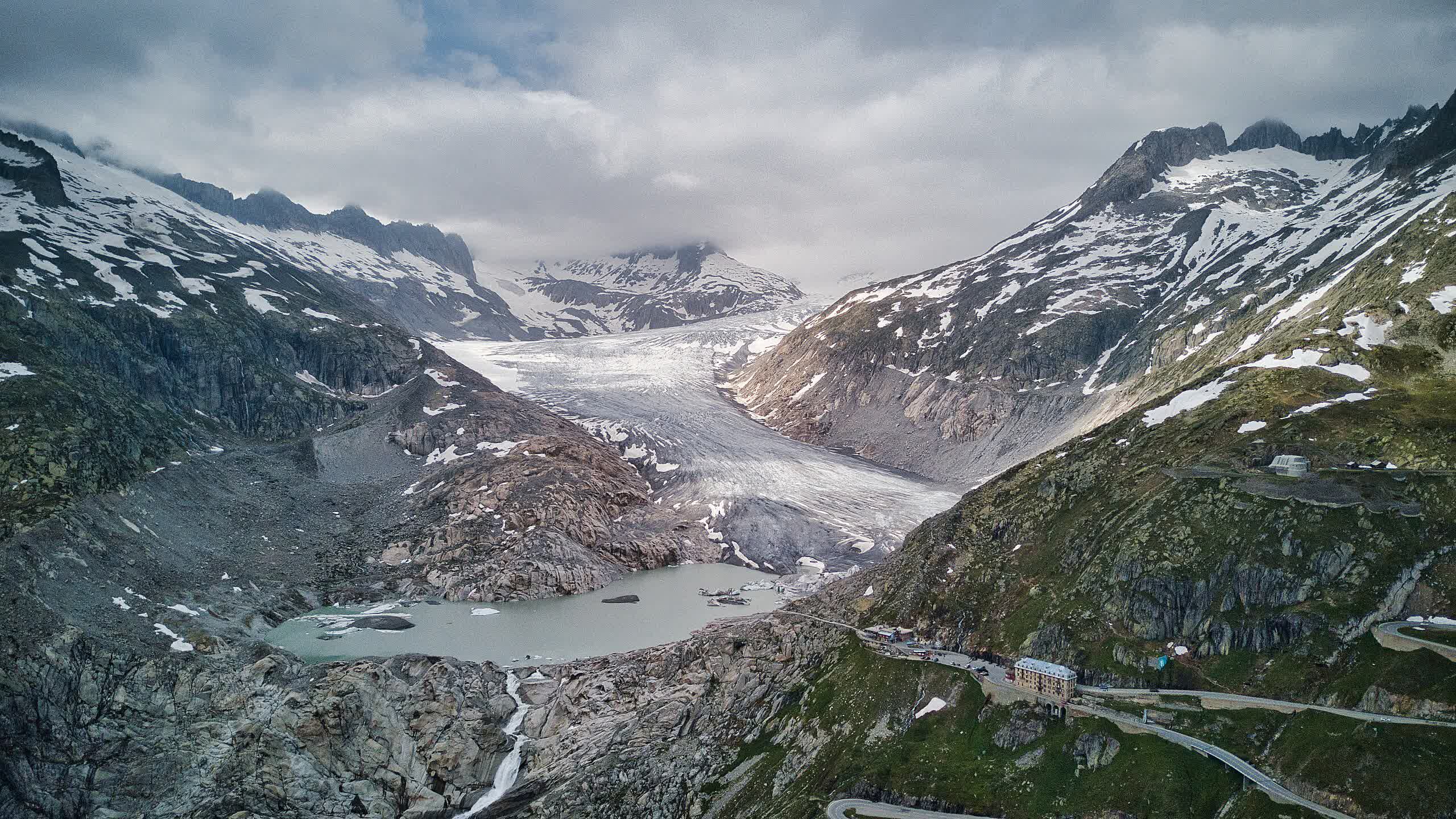Why it matters: In what is more concerning news about the environment, a new report has found that glaciers in Switzerland have lost 10% of their volume in just two years, more than they did in the three decades before 1990 combined. Researchers have called the findings "catastrophic."
The annual report comes from the Swiss Glacier Monitoring Network (Glamos), which has been monitoring 176 of Switzerland's 1,400 glaciers – the most of any country in Europe – for years.
Analysis shows that 4% of Switzerland's total glacier volume has disappeared this year, marking the second-largest annual decline after 2022, which saw 6% of the glaciers vanish; the largest fall recorded since measurements began. It means the country has lost more glacier volume in the last 24 months than it did between 1960 and 1990.
While some have noted that this year's figure is slightly smaller than last year's, Matthias Huss, the head of Glamos, told the BBC that "It was still the second most negative year since measurements started."
"It's terrible to see that this extreme of last year is just repeating."
The course of meltwater underneath Great #Aletsch #Glacier - powerful, mysterious, fascinating...
– Matthias Huss (@matthias_huss) September 21, 2023
... and depressing considering the rapid change of this ice cave pic.twitter.com/Qdq9pizuoU
The accelerating melts are being blamed on climate change brought about by the burning of fossil fuels, leading to consecutive extremely hot summers and low snow volume in winter; the snow falls on top of glaciers to protect them from direct sunlight.
Some of the glaciers have lost so much ice that there is essentially nothing left to monitor. Glamos had to stop measurements at the St Annafirn glacier in the central Swiss canton of Uri as it had virtually all melted away.
"We just had some dead ice left. It's a combination of climate change that makes such extreme events more likely, and the very bad combination of meteorological extremes. If we continue at this rate […] we will see every year such bad years," Huss said.
It's warned that even if global temperatures are kept to within the Paris Agreement target of 1.5 degrees centigrade above preindustrial levels, only a third of Switzerland's glacier volume is expected to remain. Without a dramatic reduction in greenhouse gases, the largest glaciers such as the 2,624-foot thick Aletsch could disappear within a generation.
mid-September 2023, 3100 masl: The #glacier ice is melting and melting.
– Matthias Huss (@matthias_huss) September 10, 2023
No way to sustain small glaciers as Vadret dal Murtel (Piz Corvatsch), Eastern Switzerland, in such a climate. We can just watch them going and document their demise... pic.twitter.com/o2DhVdQvcj
The melting glaciers are changing the Alps' landscape, with new lakes forming around the glacier tongues and rocks poking out from the thinning ice. No glaciers also means no ice to provide fresh water to Europe's rivers, used to irrigate crops and cool nuclear power stations.
Earlier this week brought news that Antarctica had experienced the sharpest heatwave ever seen on Earth last year. It followed confirmation that our planet is now outside most of the "planetary boundaries" under which human civilization emerged.
